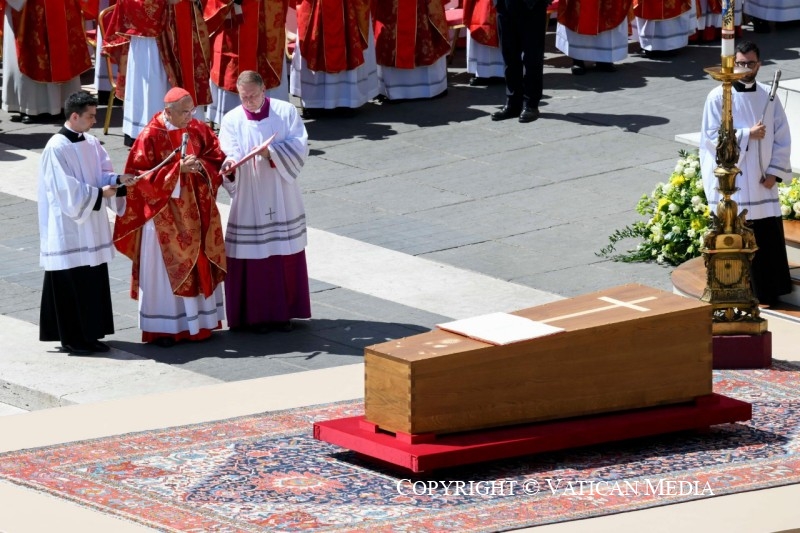Jesus teaches us to “have compassion for those who suffer, not to pass by”
Words of the Holy Father before the Angelus

At 12 noon today, the Holy Father Francis leans out of the window of the Palace’s study Apostolic Vatican to pray the Angelus with the pilgrims and faithful gathered in Saint Peter’s Square.
These are the Pope’s words when presenting the Marian prayer:
Dear brothers and sisters, buongiorno!
The Gospel of today’s Liturgy recounts the parable of the Good Samaritan (cf. Lk 10:25-37) – we all know it. In the backdrop is the road that goes down from Jerusalem to Jericho along which lies a man who had been beaten badly and robbed by brigands. A priest passing by sees him but does not stop; he keeps on going. A Levite, someone who performed services in the temple, does the same thing. “But a Samaritan”, the Gospel says, “as he journeyed, came to where he was, and when he saw him, he had compassion” (v. 33). Let us not forget this word – “he had compassion on him”. This is what God feels every time he sees we are having a problem, we have sinned, we are experiencing misery. “He had compassion on him”. The Evangelist makes it a point to specify that this Samaritan was on a journey. So, even though he had his own plans and was heading toward a distant destination, that Samaritan does not come up with an excuse but allows himself to get involved, he allows himself to get involved with what had happened along the road. Let us think about this: isn’t the Lord teaching us to do just that? To look off into the distance, to our final destination, while paying close attention to the steps to take here and now in order to get there.
It is significant that the first Christians were called “disciples of the Way” (cf. Acts 9:2). In fact, the believer strongly resembles the Samaritan – like him, the believer is on a journey, is a wayfarer. The believer knows they have not “arrived”, but wants to learn each day, following the Lord Jesus who said: “I am the way, and the truth, and the life” (Jn 14:6), “I am the way”. The disciple of Christ walks along following Him and thus becomes a “disciple of the Way”. He or she goes behind the Lord, is not sedentary, no, but is always on the way. Along the way, he or she meets people, heals the sick, visits villages and cities. This is what the Lord did, he was always on the move.
The “disciple of the Way”, that is, we Christians, observes, therefore, that his or her way of thinking and of acting gradually changes, becoming more and more conformed to that of the Master. Walking in the footsteps of Christ, the disciple becomes a wayfarer and – like the Samaritan – learns to see and to have compassion. He sees and has compassion on him. First of all, to see: their eyes are open to reality, not egoistically closed in on the circle of their own thoughts. Instead, the priest and the Levite see the unfortunate man, but they pass by as if they do not see him, they look the other way. The Gospel teaches us to see – it leads each of us to correctly understand reality, overcoming preconceptions and dogmatism each day. So many believers take refuge behind dogmatisms to defend themselves from reality. Then, it teaches us to follow Jesus, because following Jesus teaches us to have compassion – to see and to have compassion – to become aware of others, especially those who suffer, those who are in need, and to intervene like the Samaritan, not to pass by but to stop.
Faced with this Gospel parable, it can happen that we might blame others or blame ourselves, pointing fingers towards others, comparing them to the priest or the Levite – “That person, that person goes on, that one doesn’t stop…” – or even to blame ourselves, counting our own failures to pay attention to our neighbours. But I would like to suggest another type of exercise to you all, not one that finds fault, no. Certainly, we must recognize when we have been indifferent and have justified ourselves. But let us not stop there. We must acknowledge this, it is a mistake. But let us ask the Lord to help us overcome our selfish indifference and put ourselves on the Way. Let us ask him to see and to have compassion, this is a grace. We need to ask the Lord, “Lord, that I might see, that I might have compassions just like you see me and have compassion on me”. This is the prayer that I suggest to you today. “Lord, that I might see and have compassion just like you see me and have compassion on me” – that we might have compassion on those whom we encounter along the way, above all on those who suffer and are in need, to draw near to them and do what we can do to give them a hand. Many times, when I am with some Christian who comes to speak about spiritual things, I ask if they give alms. “Yes”, the person says to me.
“So, tell me, do you touch the hand of the person you gave the money to?”
“No, no, I throw it there.”
“And do you look into the eyes of that person?”
“No, it doesn’t cross my mind.”
If you give alms without touching the reality, without looking into the eyes of the person in need, those alms are for you, not for that person. Think about this. Do I touch misery, even the misery that I am helping? Do I look into the eyes of the people who suffer, of the people that I help? I leave you with this thought – to see and to have compassion.
May the Virgin Mary accompany us on this journey of growth. May she, who “shows us the Way”, that is Jesus, help us also to more and more become “disciples of the Way”.
Related

Pope Francis’ Tomb in Santa Maria Maggiore
Exaudi Staff
27 April, 2025
1 min

Mercy and the joy of the Gospel are two key concepts of Pope Francis
Exaudi Staff
26 April, 2025
9 min

Thousands of faithful bid farewell to Pope Francis in St. Peter’s Square
Exaudi Staff
26 April, 2025
2 min

Saying Goodbye to Francis
Exaudi Staff
26 April, 2025
2 min
 (EN)
(EN)
 (ES)
(ES)
 (IT)
(IT)

